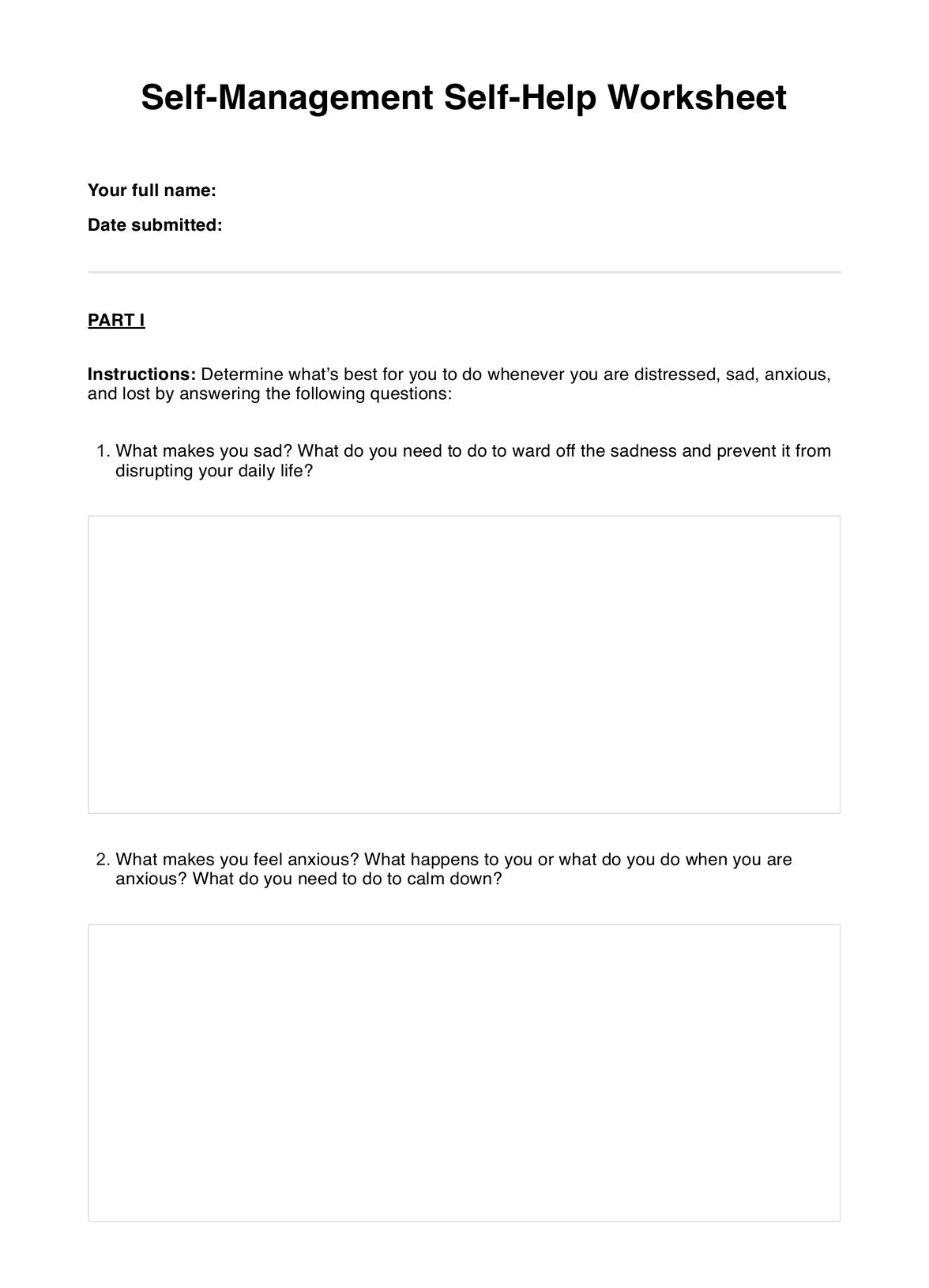The time it takes to complete the Self-Management Self-Help Worksheet may vary depending on the individual. Taking your time and thoroughly reflecting on each prompt is recommended, as this will contribute to a deeper understanding of oneself and effective strategies for managing stressors.

Self-Management Self-Help Worksheet
Download our Self-Management Self-Help Worksheet to help remind yourself about how you should take care of your mental well-being!
Self-Management Self-Help Worksheet Template
Commonly asked questions
Absolutely. This worksheet can be used as a supplement to therapy sessions, providing individuals with additional tools and resources for managing their mental health. It can also serve as a way for individuals to continue practicing self-care and coping strategies outside therapy.
Yes, Carepatron offers a variety of CBT self-help worksheets for various mental health concerns, such as obsessive-compulsive disorder and panic disorder. These worksheets are designed to assist individuals in identifying and changing negative thoughts and behaviors that contribute to their symptoms. They can be used independently or in conjunction with therapy sessions.
EHR and practice management software
Get started for free
*No credit card required
Free
$0/usd
Unlimited clients
Telehealth
1GB of storage
Client portal text
Automated billing and online payments











